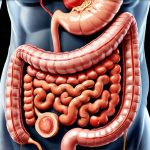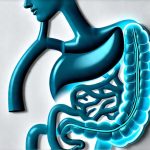The human digestive system undergoes remarkable changes throughout life. From infancy to adulthood, it adapts to various dietary needs and stressors. However, as we age, these adaptations can become less efficient, leading to a range of functional alterations that impact nutritional status, overall health, and quality of life. Understanding these changes is crucial for supporting healthy aging and addressing potential digestive concerns proactively.
The natural process of aging isn’t simply about the passage of time; it involves cumulative physiological shifts occurring at cellular and organ levels. These shifts aren’t uniform across individuals—genetics, lifestyle factors like diet and exercise, and pre-existing health conditions all play significant roles in determining how the digestive system ages. This article will explore the common impacts aging has on various aspects of digestive function, providing a general overview for increased awareness.
Physiological Changes with Age
As we age, many physiological processes slow down. This applies to digestion as well, impacting everything from chewing and swallowing to nutrient absorption. Reduced physical activity levels can also contribute to decreased gut motility – the movement of food through the digestive tract – further exacerbating these changes. These alterations don’t necessarily mean a complete loss of function but rather a gradual decline in efficiency.
These natural shifts are often subtle initially, but they become more pronounced over time and can affect how well the body processes and utilizes nutrients from food. It’s important to remember that aging is a complex process with individual variations, so the extent of these changes will differ between people.
Common Digestive Issues in Older Adults
Constipation is arguably the most prevalent digestive complaint among older adults, often linked to decreased physical activity, lower fluid intake, medications, and reduced gut motility. Other common issues include heartburn (acid reflux), bloating, gas, and difficulty swallowing (dysphagia). These problems can be uncomfortable and significantly impact an individual’s daily life, potentially leading to malnutrition or other health complications if left unaddressed.
Reduced Gastric Emptying & Motility
Gastric emptying – the rate at which food moves from the stomach to the small intestine – tends to slow down with age. This slower transit time can lead to feelings of fullness, bloating, and discomfort after meals. Simultaneously, intestinal motility decreases, further prolonging the digestive process and increasing the risk of constipation. These changes are often compounded by a decreased sensitivity to signals that trigger bowel movements.
Decreased motility isn’t always detrimental; it allows for more complete nutrient absorption in some cases. However, when it becomes excessive or leads to discomfort, it can significantly impact quality of life and potentially contribute to bacterial imbalances within the gut. Maintaining adequate hydration and fiber intake are often recommended strategies to help mitigate these effects.
Decreased Enzyme Production & Nutrient Absorption
The production of digestive enzymes—essential for breaking down food into absorbable nutrients—can decline with age. This reduction affects the digestion of carbohydrates, proteins, and fats, potentially leading to malabsorption issues. Similarly, the small intestine’s ability to absorb certain nutrients, like vitamin B12, calcium, and iron, can also diminish over time due to changes in intestinal structure and function.
These absorptive deficiencies can contribute to a variety of health problems, including anemia (iron deficiency), osteoporosis (calcium deficiency), and neurological issues (vitamin B12 deficiency). Dietary modifications and, when necessary, supplementation may be considered to address these potential deficits under the guidance of healthcare professionals.
Alterations in Gut Microbiota
The composition of the gut microbiota – the trillions of bacteria residing in our digestive tract – changes throughout life, and aging is associated with a decrease in microbial diversity. This shift can impact immune function, nutrient absorption, and overall gut health. A less diverse microbiome may be more susceptible to imbalances (dysbiosis), potentially leading to inflammation and increased risk of gastrointestinal disorders.
Factors like diet, medication use (particularly antibiotics), and chronic illnesses contribute to these alterations in the gut microbiota. Promoting a healthy gut microbiome through dietary changes – including consumption of prebiotic-rich foods (like onions, garlic, bananas) and probiotic-rich foods (like yogurt, kefir, sauerkraut) – is increasingly recognized as important for supporting digestive health and overall well-being during aging.
Ultimately, understanding the impact of aging on digestive function allows individuals to make informed choices about their lifestyle and diet to support continued health and vitality. While these changes are a natural part of life, proactive strategies can help minimize discomfort and maintain optimal nutritional status throughout the aging process. It’s important to consult healthcare professionals for personalized advice and guidance regarding any digestive concerns or potential nutrient deficiencies.


















